
Get your FREE 30-day trial.
Please complete all fields.
As new technology continues to revolutionize the way children learn in schools, the power of one subject remains the same: music education. Music education in schools has proven to be an enriching and fundamental part of learning. Research has proven that music training helps the brain to process words in spoken conversation, meaning children with disabilities can improve their reading ability. And that’s just the beginning. Music education provides dozens of benefits for children.
Not only are we big music people at Salesforce, but we believe strongly in the power of music education in the classroom. Naturally, we’re taking that passion one step further. We’re thrilled to be partnering with Little Kids Rock for The Night Before; a spectacular concert at San Francisco’s AT&T Park on February 6th the night before the big game. Little Kids Rock promotes music education in the classroom and beyond. Join us in helping to power the next generation of rock stars by donating now!
Read some even more amazing facts about the amazing benefits of music education below and donate to support Little Kids Rock!
● Music education boosts test scores: Students in high-quality school music education programs score higher on standardized tests compared to students in schools with deficient music education programs. (Source)
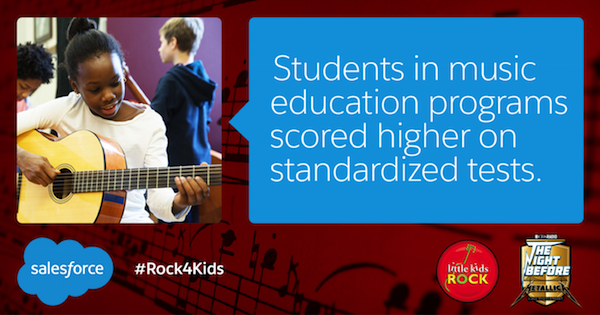
● Music helps you learn: Music enhances the process of learning. The systems it nourishes, which include our integrated sensory, attention, cognitive, emotional and motor capacities, are shown to be the driving forces behind all other learning. (Source)
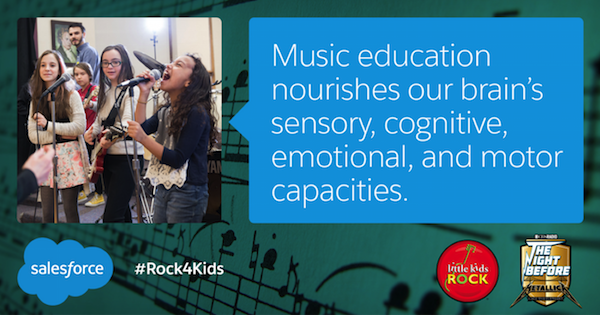
● Abstract learning through music: Research into the connection between music and intelligence concluded that music training is far greater than computer instruction in improving children’s abstract reasoning skills. (Source)
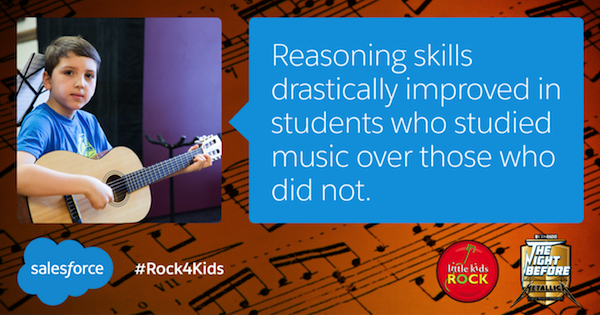
● Higher GPA: High school music students have been shown to hold higher grade point averages (GPA) than non-musicians in the same school.(Source)
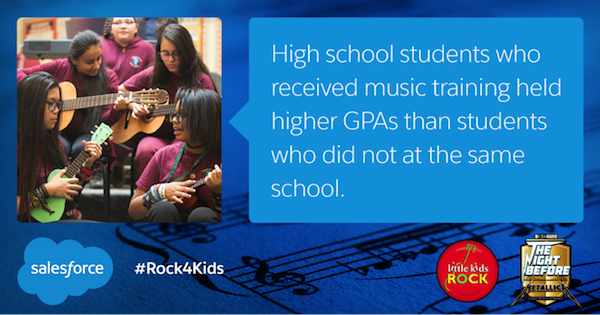
● Languages: Mastery in arts and humanities is closely correlated to a greater understanding of language components. (Source)
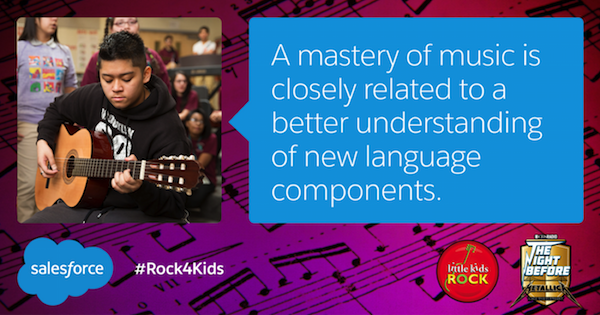
● Improved school attendance: Schools that have music programs have an attendance rate of 93.3% compared to 84.9% in schools without music programs. (Source)
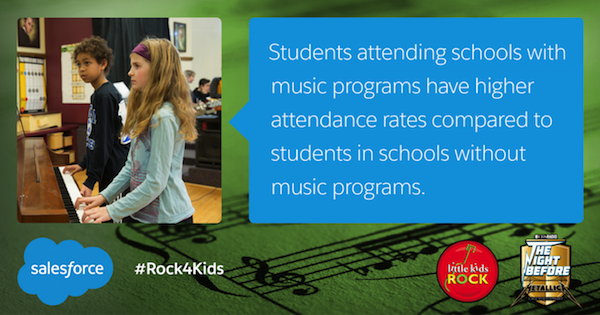
● Better classroom vibes: With music instruction in schools, teachers found that students were less aggressive. (Source)

● Helping underachievers: Students lagging behind in scholastic performance caught up to their fellow students in reading and surpassed their classmates in math by 22% when given music instruction over seven months. (Source)
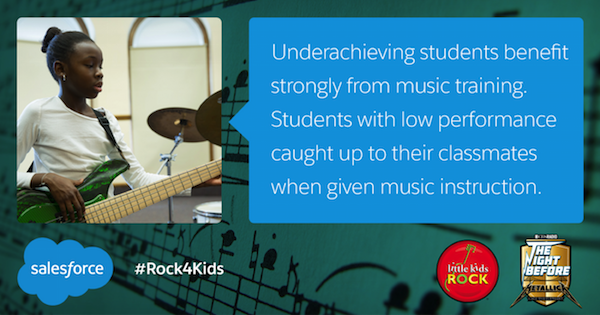
Why do you support music education? Use #Rock4Kids and tell us why music education is important to you!
Support music education, support Little Kids Rock! Donate now.